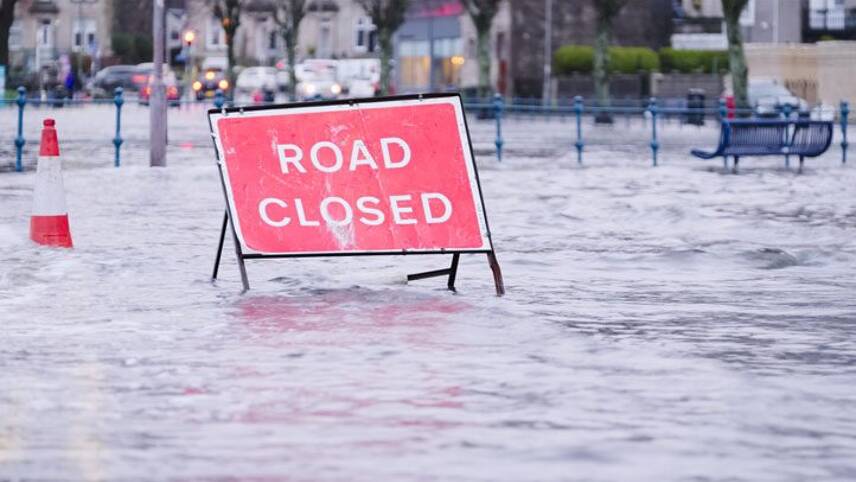Register for free and continue reading
Join our growing army of changemakers and get unlimited access to our premium content

Regardless of future decarbonisation
The research programme is called ‘Climate Services for a Net-Zero Resilient World’ and is being led by a consortium of research institutions. Sitting on the consortium are University College London (UCL), the Tyndall Centre for Climate Change Research, the British Antarctic Survey, the British Geological Survey, the National Centre for Atmospheric Science, the National Centre for Earth Observation, the National Oceanography Centre, Plymouth Marine Laboratory and the UK Centre for Ecology and Hydrology. Ricardo has been selected as the consultancy partner for the initiative.
The consortium will be tasked with assessing the impacts that warming temperatures and changing weather patterns will have on infrastructure in the UK, including buildings, power stations and electricity networks. A recent report from the Government’s own Climate Change Committee (CCC) outlined how hotter, wetter winters and hotter, drier summers will place infrastructure worth billions of pounds at risk through to 2080.
In a joint statement, the Departments for Business, Energy and Industrial Strategy (BEIS) and Food, Environment and Rural Affairs (Defra) stated that the advice provided by the programme will be taken into account in the policymaking process. The statement also confirmed that the consortium will provide the advice to local authorities, encouraging them to bolster their own local climate action plans. Most UK councils have declared a climate emergency, with many backing their declarations up with net-zero targets more ambitious than the national 2050 deadline.
As well as looking at climate adaptation domestically, the researchers will also create models outlining how the UK can reduce its global emissions footprint, engaging with nations where it has financed energy projects and nations from which goods are imported. The UK has often been accused by green groups of failing to account for emissions generated by its international activities.
There have also been accusations of developing nations, including the UK, exaggerating how much finance they have provided to developing nations for climate adaptation. The G7 collectively missed a target to provide $100bn of climate finance to such nations annually and have recently stated an intention to get back on track.
“The climate decisions taken by the Government now, and over these crucial next few years, are vital to protect our homes, our wellbeing, and our future,” Climate and Energy Minister Anne-Marie Trevelyan, also International Adaptation and Resilience Champion for COP26, said.
“This new programme brings together the brightest and best climate scientists, universities and research institutions from across the country to provide us with the latest tools, advice, and research to inform future climate policies at a national and local level. This research will be vital to ensure we’re making the best possible choices on our journey to net-zero, making certain the UK is adaptable and more resilient to the effects of climate change.
“The effects of climate change are already being felt in the UK and around the world. The Met Office’s State of the UK Climate report published last week showed that last year was the third-warmest, fifth-wettest and eighth-sunniest on record. Everyone has a part to play in tackling climate change and, combined with the efforts of individuals, businesses and industry, it is vital the UK Government prepares for how this changing climate will impact the nation and the public.”
Risk warning
The CCC’s recent report, mentioned above, ultimately concluded that the UK Government has historically failed to build in enough resilience to climate change that is already “baked-in” – i.e. the changes which will happen regardless of future decarbonisation.
Of the hundreds of climate-related risks assessed in the report, some 60% of the risks assessed are classed as requiring the highest level or urgency, up from 36% at the last assessment in 2016. No risks have decreased in urgency. Without ambitious and joined-up action now, the CCC is warning, the number of risks crystallising and resulting in a damage bill of at least £1bn is likely to be three times higher in the 2080s as in the 2010s.
The report’s findings prompted anger and concern across the UK’s green economy, with many individuals and groups pushing the Government to rapidly respond.
At the time of the CCC report’s publication, the UK Government had already published its own climate Adaptation Communication. It is encouraging other nations to do the same ahead of COP26. Since the CCC report launch, a £5.2bn flood defence spending plan for England has been drawn up.
Join the conversation at edie’s COP26 Inspiration Sessions
On Thursday 9 September, edie will be hosting three back-to-back online events focused on how businesses can harness nature-based solutions while adapting to the changing climate to improve resiliency.
Hosted during edie’s special COP26 Focus Week of content and events, this online event offers up an afternoon of live, interactive webinar presentations and discussions – all dedicated to driving business action around these two critical themes of the upcoming climate talks.
Click here for a full line-up of sponsors and speakers, and to register. Additional speakers will be announced in the coming weeks.
Sarah George


Please login or Register to leave a comment.